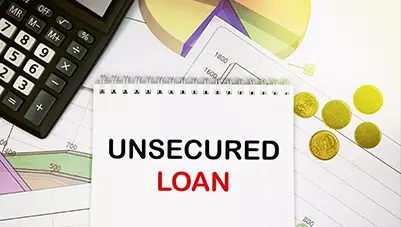Unsecured Loan Business, In today’s fast-paced world, the need for financial assistance is ever-present.

Whether it’s for starting a new business, covering unexpected expenses, or pursuing personal goals, unsecured loans have become a popular choice for many individuals and businesses.
In this article, we’ll delve into the fundamentals of the unsecured loan business, exploring what it entails and how to thrive in this competitive industry.
What are Unsecured Loans?
Unsecured loans are a type of borrowing where the lender doesn’t require collateral from the borrower.
Unlike secured loans, which are backed by assets like real estate or vehicles, unsecured loans are granted based on the borrower’s creditworthiness and ability to repay.
These loans typically have higher interest rates compared to secured loans, reflecting the increased risk for the lender.
Types of Unsecured Loans
- Personal Loans: Personal loans are one of the most common forms of unsecured borrowing.
They can be used for various purposes such as debt consolidation, home improvements, or emergency expenses.
Personal loans are typically offered by banks, credit unions, and online lenders.
- Credit Cards: Credit cards are another form of unsecured credit widely used by consumers.
They provide a revolving line of credit that can be used for purchases, cash advances, and balance transfers.
Credit card issuers determine the credit limit and interest rate based on the applicant’s credit history.
- Business Loans: Unsecured business loans are designed to provide financing to small businesses without requiring collateral.
These loans can be used for inventory purchases, equipment upgrades, or working capital needs.
Online lenders and alternative financing companies often offer unsecured business loans with flexible terms.
Challenges and Opportunities in the Unsecured Loan Business
Operating in the unsecured loan business presents both challenges and opportunities for lenders.
On one hand, the absence of collateral increases the risk of default, leading to higher interest rates and stricter eligibility criteria.
On the other hand, catering to individuals and businesses without assets to pledge opens up a vast market of potential borrowers.
Key Factors for Success
- Risk Management: Effective risk management is crucial in the unsecured loan business.
Lenders must carefully assess the creditworthiness of applicants and implement robust underwriting processes to minimize the risk of default.
- Customer Acquisition: Building a strong customer acquisition strategy is essential for success in the competitive lending market.
This includes targeted marketing efforts, strategic partnerships, and offering competitive loan products tailored to the needs of the target market.
- Customer Service: Providing exceptional customer service can set lenders apart from their competitors.
Responsive support, clear communication, and transparent lending practices can build trust and loyalty among borrowers.
- Regulatory Compliance: Compliance with regulatory requirements is non-negotiable in the lending industry.
Lenders must stay up-to-date with relevant laws and regulations governing unsecured lending to avoid legal issues and maintain a good reputation.
- Technology Adoption: Embracing technology can streamline loan processing, enhance risk assessment, and improve overall efficiency.
From online application platforms to advanced analytics tools, leveraging technology can give lenders a competitive edge.
Conclusion
The unsecured loan business offers significant opportunities for lenders to serve the financial needs of individuals and businesses.
By understanding the fundamentals of unsecured lending and implementing sound business practices, lenders can navigate the challenges and thrive in this dynamic industry.

FAQs
- Are unsecured loans suitable for people with bad credit?
- While some lenders offer unsecured loans to individuals with bad credit, the interest rates are typically higher, reflecting the increased risk for the lender.
- How can I improve my chances of getting approved for an unsecured loan?
- To improve your chances of approval, focus on improving your credit score, reducing existing debt, and demonstrating a stable income and employment history.
- What happens if I default on an unsecured loan?
- If you default on an unsecured loan, the lender may pursue legal action to recover the outstanding debt.
Additionally, your credit score will be negatively impacted, making it harder to borrow in the future.
- If you default on an unsecured loan, the lender may pursue legal action to recover the outstanding debt.
- Can I use an unsecured business loan to start a new business?
- Yes, unsecured business loans can be used to finance various business expenses, including startup costs, inventory purchases, and marketing initiatives.
- Are there any alternatives to unsecured loans?
- Yes, alternatives to unsecured loans include secured loans, lines of credit, crowdfunding, and seeking investment from venture capitalists or angel investors. Each option has its own advantages and considerations.
